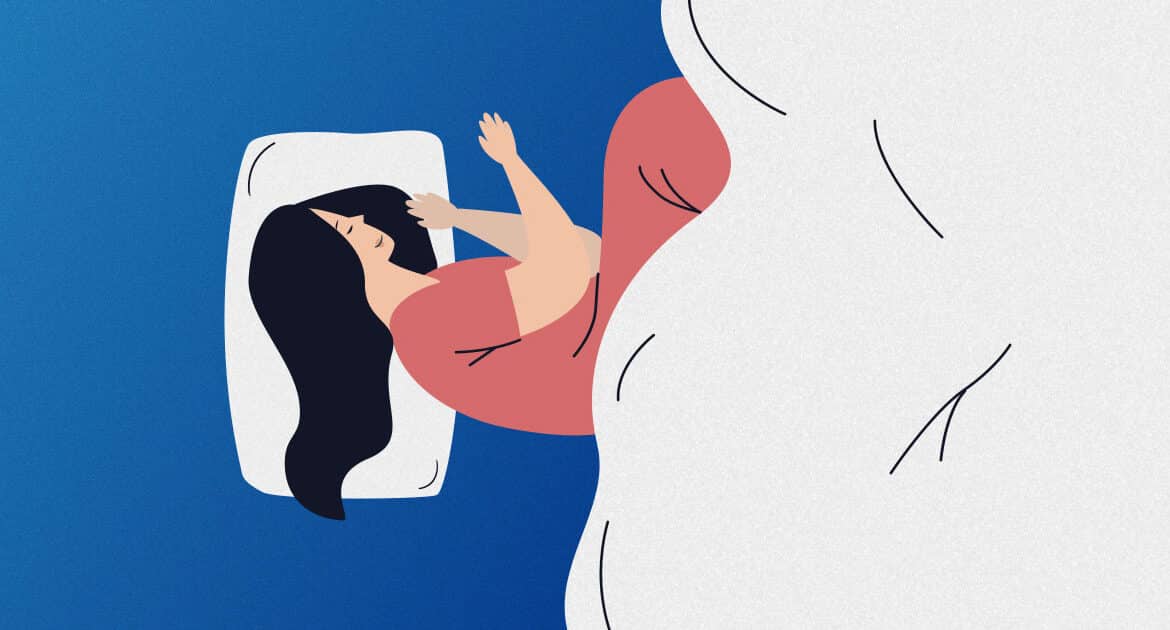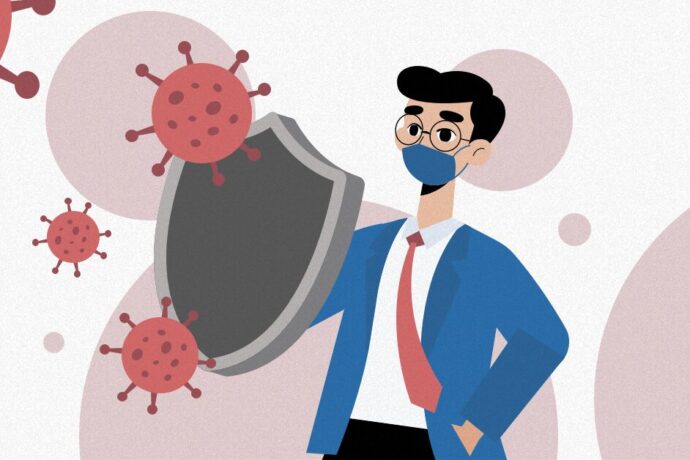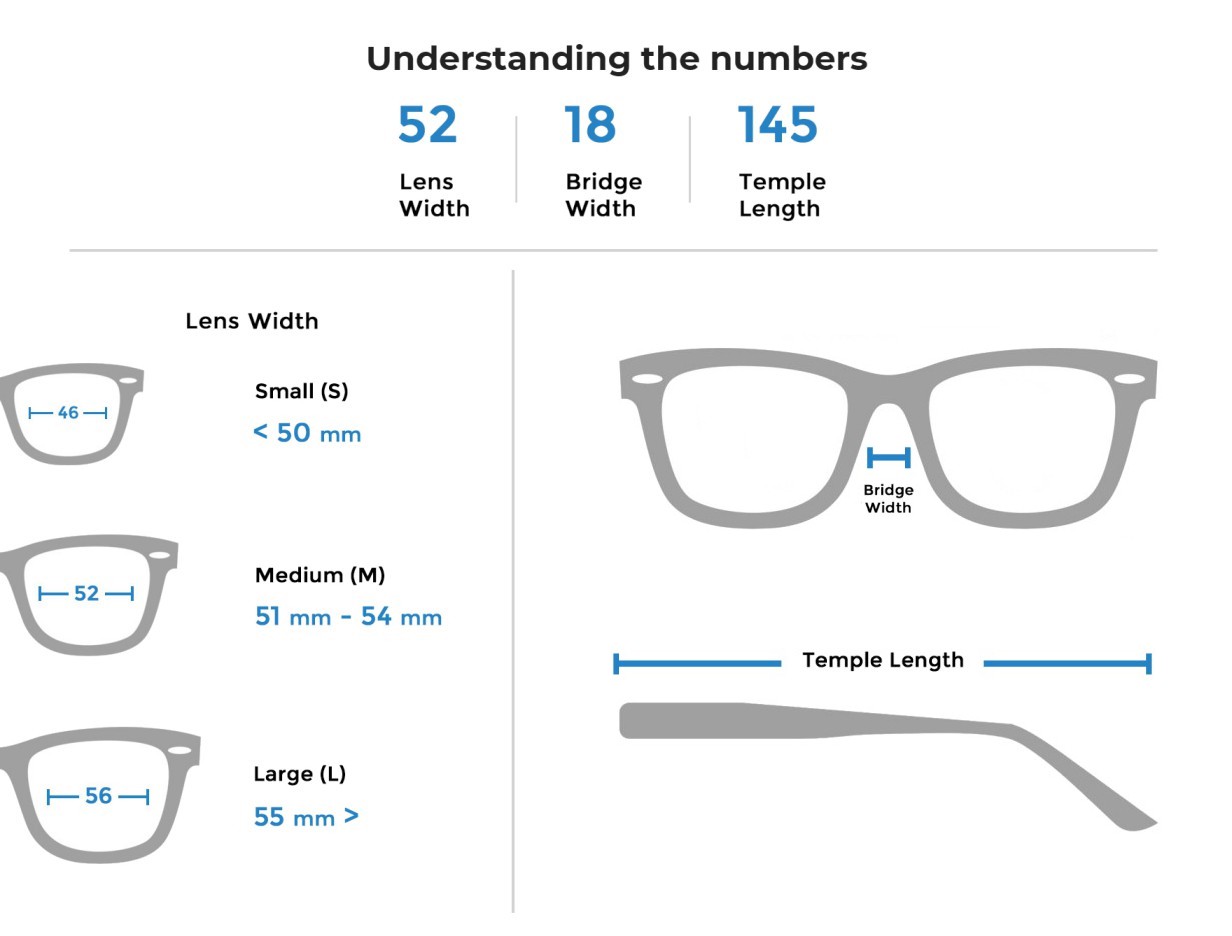The Importance of a Good Night’s Sleep
If you’ve ever spent the night tossing and turning, you know that the next day you often feel groggy, tired, and even grumpy. But did you know that missing out on 7-9 hours of sleep can do a lot more than just make you sleepy? In this blog, we’ll dive into the importance of a good night’s sleep and what you can do to feel well rested.
Why Do We Need Sleep
Sleep is essential for our health and well-being as it significantly impacts our brain function.
Getting enough quality sleep, and at the right times, is essential to our bodies just as much as food and water are. Without enough sleep, humans cannot recall old memories or form new ones. It is also more difficult to concentrate and respond quickly. NINDS
Sleep is important to many brain functions, particularly how nerve cells communicate with each other. Contrary to popular belief, our brain and bodies stay pretty active while we sleep. Sleep plays a very important role in removing toxins from our brain that build up during the day while we are awake.
Studies show that sleep affects almost every part of our body. From the brain, heart, immune system, metabolism, mood, disease resistance, and more. Chronic sleep deprivation, or overall poor quality of sleep, can increase the risk of health disorders like high blood pressure, depression, anxiety, heart disease, and even obesity.
In this article, we’ll dive into how much sleep you should be getting, what is sleep deprivation and how you can prevent it, the effects of blue light on the quality of our sleep, and more.
How Much Sleep Should You Be Getting
The amount of sleep you should be getting varies from person to person. On average, most healthy adults require between 7 and 9 hours of sleep a night. Some people can function without any sleepiness or drowsiness with only 6 hours of sleep, while others can’t perform their best without getting in at least 10 hours of sleep.
According to the National Sleep Foundation, millions of people are not getting adequate sleep each night. Many Americans suffer from a variety of different sleep disorders and 60% of adults report having issues sleeping several nights a week or more.
What Happens When We Sleep
Contrary to popular belief, our bodies aren’t actually resting while we sleep – they’re working. Sleep is an active period during which our bodies process the loads of information we encounter each day. According to sleepfoundation.org, the vital role of sleep is to help us solidify our memories. While we sleep, bits and pieces of information from our day are consolidated and transferred into our long-term memories. Research has shown that sleep helps us retain information and helps our memories to perform better. In addition to strengthening our memory, long periods of sleep allow our bodies to rejuvenate, grow muscle and repair tissue.
Sleep Stages
There are two main types of sleep: REM (rapid eye movement) sleep and non-REM sleep. Each type of sleep is linked to specific brain waves and activity. During a typical night of sleep, humans cycle through all the stages of REM and non-REM sleep several times. REM periods get increasingly longer and deeper toward the morning.
Non-REM sleep has a total of three stages:
Stage 1 of non-REM sleep lasts only several minutes and consists of light sleep when your body begins to transition from wakefulness to sleep. During this period, your body begins to relax.
Stage 2 of non-REM sleep is the period right before your body enters a deeper sleep. At this time, your heartbeat slows, as does your breathing, and your muscles begin to further relax. Your body temperature begins to drop and your brain activity slows down, but still has bursts of electrical activity.
Stage 3 of non-REM sleep is the deep sleep that allows you to feel refreshed in the morning. This type of sleep occurs during the first half of the night and in longer periods of time. This is also when your heartbeat and breathing slow down to their lowest levels and your muscles are fully relaxed.
REM sleep occurs in the first 90 minutes after falling asleep. This type of sleep is probably the most familiar to you – it is when your eyes move rapidly behind closed eyelids. At this time of the night, most of your dreaming occurs, though some can also occur during non-REM sleep. The older you get, the less time your body spends in REM sleep.
Memory consolidation requires both non-REM and REM sleep.
What is Sleep Deprivation
Sleep deprivation, also known as sleeplessness, is a condition in which an individual does not get enough sleep. Sleep deprivation is usually caused by a consistent lack of sleep or low quality sleep over an extended period of time.
Our bodies need sleep, just as much as they need food, water, and oxygen to function properly. While we sleep, our chemical balance is restored, allowing our bodies to rejuvenate, grow muscle and repair tissue. Lack of sleep can dramatically impact our quality of life.
Some signs of sleep deprivation include:
- Moodiness – sleep deprivation can make you emotional, moody, and short-tempered. Chronic sleep deprivation may lead to depression and anxiety, which can potentially escalate.
- Weakened Immune System – lack of sleep can negatively impact your immune system, preventing your body from fighting off common illnesses like the cold and flu. Sleep deprivation means you may be more likely to get sick when exposed to germs.
- Difficulty Concentrating – when you don’t get enough rest, your brain has difficulty concentrating, thinking, and problem-solving. Lack of sleep can also increase your chances of getting into car accidents.
- Impacted Memory – while we sleep, bits and pieces of information from our day are consolidated and transferred into our long-term memories. Lack of sleep can negatively impact our memories.
- High Blood Pressure – getting less than 5 hours of sleep each night can increase your risk of high blood pressure.
- Weight Gain – sleep deprivation influences the chemicals in our body that signal to our brain that we are full. This can cause overindulgence even when we’ve eaten enough food.
- Increased Risk for Diabetes – people that don’t get the recommended amount of sleep each night are at a higher risk for developing Type 2 Diabetes. This is because lack of sleep causes blood sugar levels to rise and affects our bodies release of insulin.
- Poor Balance – lack of sleep can cause poor balance and impaired coordination, making you prone to physical accidents.
Can Sleep Deprivation Be Treated?
The easiest way to combat sleep deprivation is to simply get more sleep.
However, it isn’t always that straightforward, especially for individuals who have been sleep deprived for an extended period of time. If you find yourself struggling with sleeplessness, you might require assistance from a doctor or sleep specialist. These professionals can help diagnose a possible sleeping disorder, and help treat it as well.
The most common types of sleep disorders include:
- Movement disorders
- Narcolepsy
- Restless leg syndrome
- Sleep apnea
- Seizures
In order to diagnose these conditions, your doctor may request a sleep study.
How to Prevent Sleep Deprivation
Getting adequate sleep is the number one key to preventing sleep deprivation. For most adults, the recommended amount of sleep is between 7 and 9 hours per night.
Other ways you can prevent sleep deprivation and create a healthy sleep schedule:
- Creating a sleep schedule and sticking to it (going to bed and waking up at the same time each day)
- Exercising regularly
- Avoiding heavy meals at least two hours before bedtime
- Practicing relaxing activities at least one hour before bedtime (these include reading, meditating, etc.)
- Avoiding blue light or wearing blue light blocking glasses, especially before bedtime
Humans are creatures of habit, so implementing a healthy nighttime routine and sleep schedule is the first step toward quality sleep.
If you regularly implement these tips and still have difficulty sleeping at night, contact your doctor.
How does blue light affect the sleep cycle?
Blue light is a part of the light spectrum that our body relies on to help us wake up in the morning. We need a small amount of blue light to activate our brain and to keep us going throughout the day.
Specific to sleep health, the blue light emitted from our electronic devices happens on a spectrum (measured in nanometers) that may be contributing to our poor-quality sleep. Blue light is more powerful than other light in the visible light spectrum, and the blue light emitted from our devices occurs in a range of 459-484 nanometers. This range of blue light is critical in influencing melatonin, the hormone responsible for entraining our circadian rhythms, also known as the sleep/wake cycle.
Our brains associate blue light with daytime, meaning that if a person is exposed to blue light for a longer period of time in the evening, it can be more difficult to fall asleep and wake up in the morning.
Excessive exposure to blue light disrupts the normal nighttime secretion of melatonin, a hormone that regulates the sleep cycle. Sleep experts have spent years studying the impact of blue light on our circadian rhythm, a cycle that tells our bodies when to sleep and wake up. Their studies have proven that the increased use of electronic devices and extended screen-time are one of the primary causes of sleep disturbance.
One way to prevent overexposure to blue light is by wearing blue light blocking glasses. These glasses are fitted with special lenses that filter out the maximum range of blue light, making them the most effective solution in improving eye health and quality of sleep.
Benefits of a Good Night’s Sleep
Getting adequate, quality sleep, has many health benefits. Here are some additional reasons why you should give your body all the ZZZs it needs:
Sleep boosts your mood
Getting enough sleep decreases your chances of developing a mood disorder. While sleeping, our brains process our emotions and refresh our bodies so that we can be better prepared for the day ahead. Inadequate sleep can lead to negative emotional reactions, depression, and anxiety. A refreshing sleep elevates our overall mood and leads to overall more positive reactions throughout the day.
Sleep leads to a healthier heart
Because of the way sleep interacts with our blood vessels, lack of sleep has been linked to worsening cholesterol and blood pressure. For this reason, many heart attacks are more likely to occur in the morning. Getting between 7 and 9 hours of sleep per night can help keep your heart healthy.
Sleep makes you more alert
When you haven’t had enough sleep, you can probably relate to feeling groggy and maybe even have trouble remembering things. Sleep let’s your brain store memories and information, making your brain sharper the next morning. A good night’s rest prepares you for soaking up new information, while still holding onto the details of yesterday.
Sleep lowers stress
An inadequate amount of sleep can cause your body to go into a state of stress. This puts your body’s functions on high alert which leads to the increased production of stress hormones and even elevated blood pressure.
Sleep can aid athletic achievement
While we sleep, our brain and bodies work to repair our muscles. Our cells produce more protein while we sleep, which are the building blocks of cells. A proper night’s rest sets you up for a better athletic performance.
Discover our range of blue light blocking glasses that offer 100% UV protection, are scratch-resistant, block all HEV lighting, and can be worn at both daytime and nighttime – visit our shop and choose amongst men’s, women’s and unisex models.















